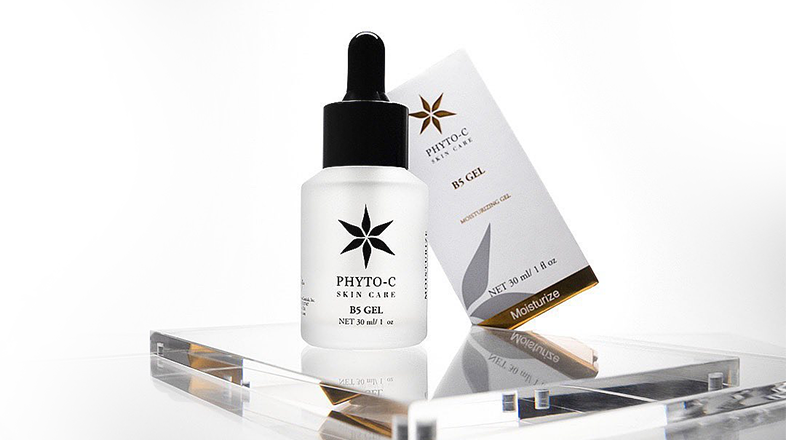A person with sensitive skin will have instantaneous responses to both external environmental factors along with skin care products and emotional tension. Exposure to rough ingredients leads to sensitive skin becoming inflamed or red and itchy, thus making the search for appropriate skincare routines difficult. The antioxidant vitamin C helps the skin become brighter and produces collagen, but sensitive skin needs specific forms of this vitamin. The selection between different vitamin C types represents the key decision for obtaining skin well-being with brightening results and minimal irritation. This text contains all important information about how to use vitamin C serum for sensitive skin effectively.
Sensitive skin types easily develop allergic reactions as well as show signs of irritation while becoming red. Your sensitive skin maintains a fragile protective barrier, because of which environmental elements and potent skincare components, along with pollution and UV exposure, easily damage it. The symptoms of sensitive skin show through itching and burning, together with dryness, which emerges following specific product applications. People who have this skin type must use products containing gentle moisturizing ingredients that protect while refraining from harsh active components that remove vital facial water.
Sensitive vs. Oily Skin: Why the best vitamin C serum for sensitive skin Matters
The high production of sebum by oily skin prevents it from accepting strong active components like ascorbic acid (pure vitamin C) properly. Vitamin C irritates sensitive skin because this skin type lacks the protective layer to shield it from strong concentrations of vitamin C. The skin type of someone with an oily complexion can handle higher strength vitamin C concentrations, yet those with sensitive skin should seek mild, stable forms of vitamin C to prevent painful reactions. The vitamin C serum for sensitive skin online selection process requires knowledge about these skin differences.
Why Vitamin C is Beneficial for Sensitive Skin
The antioxidant properties of Vitamin C protect human skin by defending against damage from pollution as well as UV rays. The skin benefits from collagen manufacturing and receives a reduction of dullness and a toned skin appearance post-using best vitamin C serum for sensitive skin. Satisfactory forms of vitamin C for delicate skin assist in fortifying the skin barrier to increase its ability to handle irritating substances. The correct formulation of vitamin C both minimizes redness in addition to decreasing light acne breakouts while maintaining skin freshness without triggering sensitivity issues.
The selection of antioxidant Vitamin C Serum for Sensitive Skin type matters
Different compositions among vitamin C types yield distinct substances which become ready for utilization. Pure ascorbic acid stands out as the most potent version yet its use might produce adverse reactions in mildly sensitive skin patients. The same benefits of good vitamin C serum for sensitive skin can be obtained from sodium ascorbyl phosphate and magnesium ascorbyl phosphate products which provide the same performance with decreased skin sensitivity. These compounds deliver stability together with strong performance benefits which work well for skin types that react easily and become red.
Why Choose Sodium Ascorbyl Phosphate and Magnesium Ascorbyl Phosphate for Sensitive Skin?
Specific antioxidant Vitamin C Serum for Sensitive Skin needs selection since they generate mild reactions during collagen production and skin lightening. The effective dermal Vitamin C ingredients come in two forms through Sodium Ascorbyl Phosphate (SAP) and Magnesium Ascorbyl Phosphate (MAP). Your skin receives improved stability from SAP and MAP despite their water-solubility helping the skin avoid redness and irritation.
These water-soluble ingredients of Vitamin C retain their effectiveness at lower doses, thus reducing irritation and keeping free radical suppression with tone-elevating benefits. Vitamin C derivatives create stronger defenses in the skin's barrier, which improves its ability to resist external aggressors. SAP stands out because it functions as an antibacterial element that fights acne while being suitable for people who need delicate skin solutions. SAP or MAP provides all the vitamin C advantages to your skin while maintaining its comfort zone and health status.
Ingredients to Avoid When Using Vitamin C on Sensitive Skin
The vitamin C serum for sensitive combination skin with selected ingredients causes skin irritation, so alcohol-based products weaken skin barriers and increase its sensitivity.
Parabens, together with artificial scents, result in allergic responses that trigger skin redness along with irritation. Combining AHAs with BHAs as well as Vitamin C produces strong exfoliants that cause excessive irritation to the skin.
Applying retinol alongside vitamin C produces adverse effects that result in dry skin along with peeling. The use of sulfates along with essential oils promotes sensitivity and causes inflammation of the skin.
The survival of sensitive skin depends on reading product labels and abstaining from using these damaging components. Pick skin products with mild hydrating agents because they will preserve comfort and calmness on your face.
How Vitamin C Serum Helps with Common Skin Issues
Vitamin C serum comes with benefits that treat various types of skin issues, primarily targeting sensitive skin problems. When used, the skin barrier improves its robustness, and inflammation becomes calmer. Prolonged usage of vitamin C reveals a more uniform skin appearance because it lightens and equalizes skin tones. The anti-inflammatory effect of Vitamin C enables it to ease light acne cases while stopping the progression of acne inflammation. Dry and lackluster skin can use vitamin C to create fresher, more radiant appearances through collagen enhancement. A well-formulated serum enables sensitive skin to progress toward improvement while causing no unwarranted skin discomfort. Regular vitamin C serum use builds lasting skin health by both moisturizing effectively and strengthening the barrier functions while offering youthful-looking results.
How to Use Vitamin C Serum Without Irritating Sensitive Skin
Your skin will develop irritation if you add Vitamin C serum to your skincare regimen at unsafe rates. The initial step should include a patch test to detect any negative responses. Start your application schedule with a solution that contains 5-10% Vitamin C and use it every other day until your skin shows adaptation. A hydrating skincare finish should contain ceramides together with hyaluronic acid since both ingredients maintain skin moisture levels and ease dryness.
Use sunscreen protection for sensitive skin whenever applying Vitamin C since the compound makes skin more sensitive to sunlight. The application of strong retinol and exfoliating agents and other potent active ingredients needs to be avoided together with Vitamin C treatments in your skincare routine. Whenever introducing Vitamin C to individual skin through controlled measures the treatment yields favorable results without negative consequences.
What to Expect: Side Effects and How to Minimize Them
The potential reaction of sensitive skin to vitamin C use causes minor tingling sensations together with redness and delicate dryness during initial exposure. The skin develops tolerance, resulting in the disappearance of these adverse side effects. A hydrating moisturizer containing ceramides or hyaluronic acid should be applied immediately after Vitamin C usage to reduce discomfort levels. You should adjust your vitamin C application to only alternate days to help your skin develop resistance whenever irritated skin persists. Regular users should consider vitamin C derivatives that are milder than ascorbic acid since they provide gentler cosmetic treatments. Apply Vitamin C with strong exfoliants or retinol since this combination might lead to severe skin sensitivity. Daily sunscreen application becomes important since vitamin C increases skin sensitivity to sun rays. The correct application techniques allow people to stay on course with Vitamin C benefits while controlling its side effects.
The Best Skincare Ingredients to Pair with Vitamin C
When combined with suitable skin ingredients, vitamin C delivers improved benefits to sensitive skin tissue. Hyaluronic acid creates moisture retention, which stops dryness and reduces skin irritation. Niacinamide shows excellent compatibility with vitamin C because it simultaneously brightens skin and reinforces skin barrier protection. Audience members should use aloe vera on their skin because its soothing effects minimize inflammation and reduce skin redness. Ceramides create a protective layer above the skin surface, which prevents drying effects from external elements.
The addition of peptides enhances skin repair mechanisms along with improving resilience so Vitamin C proves more successful as a skin treatment. The combination of vitamin C with retinol or strong acids should be avoided because they create additional sensitivity in the skin. When vitamin C interacts with skin-neutral components, it enables users to obtain optimal benefits without compromising skin sensitivity.
Finding the Superior Vitamin C Serum for Your Skin
To choose a best serum for sensitive skin dermatologist recommended, one must select mildly formulated products. Sodium Ascorbyl Phosphate, together with Magnesium Ascorbyl Phosphate, functions well as a substitute for pure Ascorbic Acid. Mixtures of 5-10% concentration yield enough skin-brightening benefits without triggering sensitization in the skin. Dark glass containers provide the best stability performance when correctly storing products containing vitamin C. Select products that include both chamomile and aloe vera as their soothing elements, as they will yield additional benefits for sensitive skin. A water-based serum containing a pH value similar to your skin will lower the chance of irritation. The appropriate choice of Vitamin C formula allows sensitive skin types to experience valuable radiant skin effects.
Conclusion
People with sensitive skin should use additional care when using Vitamin C since it does not require them to forfeit its valuable rewards. With proper usage of correctly chosen vitamin C ingredients determining the correct form and avoiding strong components, you can obtain enhanced skin brightness accompanied by healthy skin without negative effects. The dermatologist recommended vitamin C serum for sensitive skin products from Phyto-C are made for sensitive skin types because they provide both effectiveness and gentleness for skincare needs. Your skin deserves proper attention so you can achieve radiant, disappointment-free skin.




 Next Post
Next Post